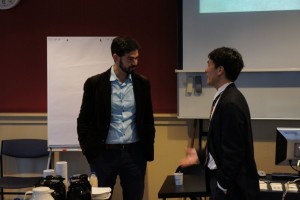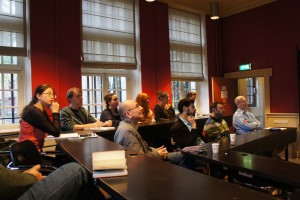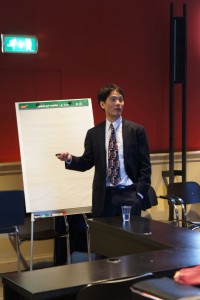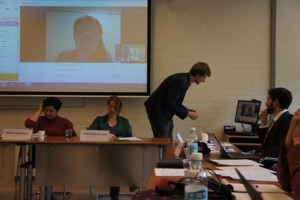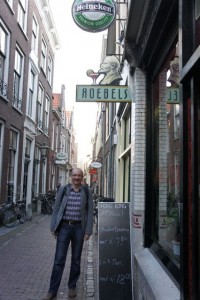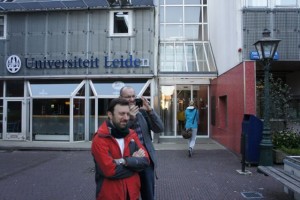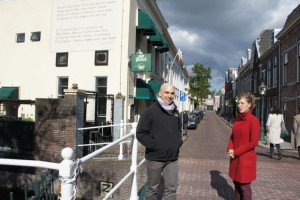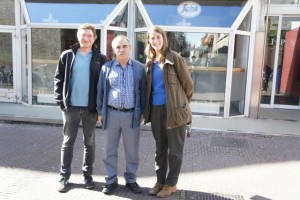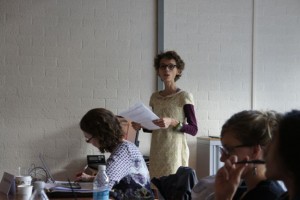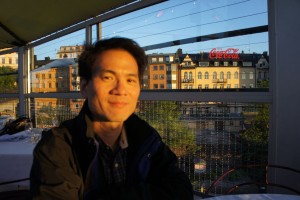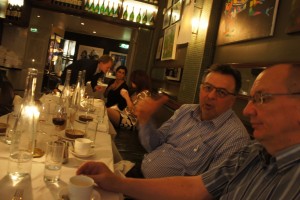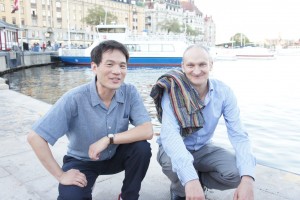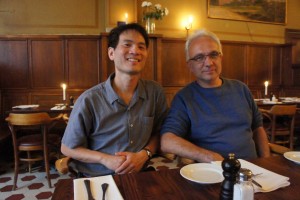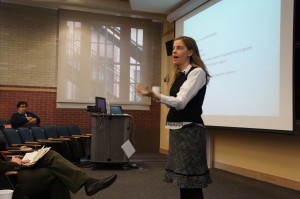Why does democracy not make sense? See my new post in the Huffington Post! I’m applying insights from complexity science on self-organization to answer those who say there is nothing between strict state control and total chaos.
Posts
Islamic revival and social justice
I’ve just written a Huffington Post blog piece on the relationship between Islamic revival and social justice. I hope to be writing on this topic every so often.
How can Islamism be understood and evaluated more “on its own terms”? Do its claims make sense within their own frameworks, and do they deliver what they themselves promise? That is what I’m trying to weigh.
New Role as Religion & World Affairs Blogger for the Huffington Post
I’ve been invited to be a blogger for the The World Post of the Huffington Post, writing on religion and world affairs. My first post is just up and is about the relation of Turkey and Central Asia.
Conference on Soviet & Post-Soviet Development, Leiden University, September 2015
Giving a public lecture about Central Asia & the World
Lecture
When outsiders think about Central Asia, they tend to view the ex-Soviet Muslim region through the lens of their own interests and standards. They think of it as a new source of oil, or as a region still needing western assistance in building free markets, democratic governance, or civil society almost 25 years after the Soviet collapse. But what kind of societies do Central Asians themselves want to have, and how do they see their place in the world today? And what can their perspectives teach the rest of the world?
http://research.leiden.edu/research-profiles/amt/centralasia/news-events/24-09-2015.html
Stockholm Conference, June 2015
My book just won an award.
I just received this book award a few days ago at the CESS conference in New York, held this past weekend at Columbia University’s Harriman Institute for Russian, Eurasian, and East European Studies. The awards committee considers publications in History and Humanities one year and Social Sciences the next, so the competition for this year included a list of publications from both 2012 and 2013.
http://artsandsciences.osu.edu/news/morgan-liu-wins-book-of-the-year-award
Here is what the awarders wrote:
It is with great pleasure that I write you with the very good news that you are to be awarded the annual book award of the Central Eurasian Studies Society in 2014 for your monograph Under Solomon’s Throne.
Your book was chosen as the best book on Central Eurasia in the Social Sciences published in 2012 or 2013. It was selected from a high-quality shortlist of seven.
The panellists made the following comments about your superb book.
‘This ethnographic study gets to the heart of the paradoxical social dynamics that have twice in twenty years propelled the city of Osh into ethnicity-based riots and potential war, sending as many as half a million people fleeing as refugees. The study is wonderfully researched and brilliantly illustrates the ways in which Osh is reflective of the region as a whole. It peels back the multiple layers of identity — Soviet, post-Soviet national, neighborhood, regional, religious — and exposes how they combine to inform the ways that people make sense of their lives and the political tensions that they confront on a day to day basis. The study is bookended by two traumatic ethnic conflicts. By focusing on the time inbetween, Liu’s study does a beautiful job of bringing to the fore the complexities of everyday life for all Central Asian peoples. It is punctuated with a great number of vignettes that illustrate this complexity for the uninformed reader, and I loved his use of the various types of urban space (mahalla served six ways, the street, the gate, etc.) which make so much sense to those of us who have spent extended periods living in the region. His conclusions are applicable far beyond Osh. The scholarship is exceptional, it is written in elegant prose, and it stands to improve knowledge about Central Asia among vast audience.’
‘Liu’s book stands to do the most in terms of advancing scholarship on the region as well as a general understanding of the lived experiences of Central Asians. It does a magnificent job at portraying Central Asian Muslims in realistic and three-dimensional terms. It is finding an enthusiastic audience among scholars of multiple disciplines, including of course Anthropology and Sociology, as well as IR/Political Science, and has already made its way into the classroom. Liu’s study is a real field-changer.’
Liu’s book is remarkable for its, ‘contribution to the field in terms of really explaining the moral force of authoritarianism (authoritarianism from below, if you wish) and support for a strong state (again, from below) in many Eurasian countries’
‘What I like the most about Morgan’s book is that he brings forth full “intellectual capacity” of his informants’
U Pittsburg/Carnegie Mellon U Minicourse on Central Asia, March 2014
I’ve begun adding info on courses I’ll teach in fall 2014.
Resources for Students interested in Anthropology
Here is a good resource for students and recent graduates interested in a career related to Cultural Anthropology: https://www.facebook.com/aaaengaginganthroforum



